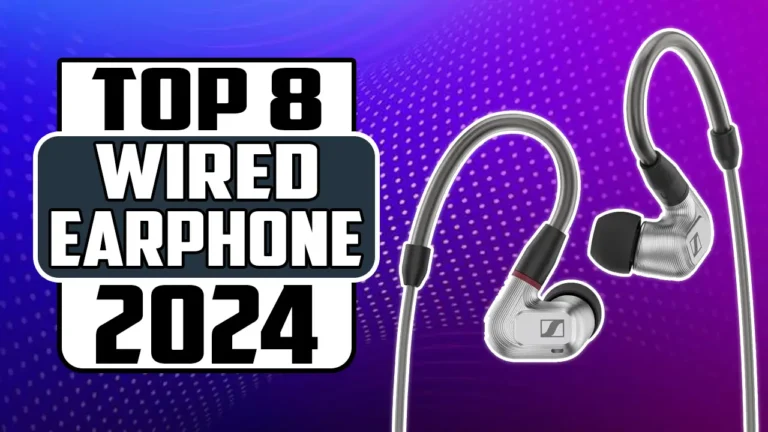Parent’s Choice Top 8 Best GPS Trackers for Kids In 2024
Ensuring the safety and well-being of our children is a top priority for parents, and the advancement of technology has provided a range of options for GPS trackers designed specifically for this purpose. In this comprehensive guide, we will delve into the features and functionalities of the top eight GPS trackers for kids available in the market. From Apple Watch Series 8 to Jiobit Generation 2, each device offers unique advantages, catering to different preferences and needs. The discussion will highlight the effectiveness, limitations, and distinctive features of each tracker, providing parents with valuable insights to make informed decisions about the safety of their loved ones.
1. Jiobit Generation 2:
At the forefront of our list is the Jiobit Generation 2 GPS Tracker, recognized as the best option for keeping tabs on kids, pets, and older adults. The Jiobit’s compact design, measuring just 2 x 1.5 x 0.5 inches and weighing a mere 0.6 ounces, ensures minimal intrusion. Its versatile loop allows attachment to backpacks, shoes, belt loops, keychains, or necklaces. The absence of a screen, microphone, or speaker contributes to its durability, making it shock-resistant and waterproof with an IPX8 rating.
Testing its resilience through drops, steps, and exposure to rain, the Jiobit proved not only robust but also reliable, requiring charging only every five days or so. The introduction of the Jiobit Next promises enhanced battery life and more accurate tracking, featuring a new antenna design and low-power wide area network support for improved performance in areas with limited cellular coverage.
2. Angel Sense Personal:
While initially designed for autistic children, the AngelSense Personal GPS Tracker has gained popularity among diverse families, thanks to its automatic pickup option. This unique feature allows parents to speak to their children without waiting for them to answer. Especially beneficial for nonverbal children, this feature ensures constant communication. The listen-in capability adds an extra layer of security, enabling parents to monitor their child’s surroundings for safety, particularly in situations of potential bullying.
Continuous tracking and a late-departure warning further solidify AngelSense’s comprehensive set of features. It’s important to note that the device provides 60 talk minutes per month, and additional talk time can be purchased if needed, with some limitations related to sound muffling through clothing.
3. TickTalk 4:
The TickTalk 4 GPS Tracker is tailored for parents seeking a smartwatch without the distractions commonly associated with such devices. Geared towards children aged 5-12, this feature-rich watch combines GPS tracking functionalities with emergency SOS, 911 response, and location tracking. Setting itself apart from basic GPS trackers, the TickTalk 4 doubles as a phone, facilitating video and voice calls between parents and children.
While the necessity of Wi-Fi for video calls and a potential impact on battery life are considerations, the watch offers additional amenities like step counting and music streaming through iHeart Radio Family. Compatibility limitations with certain carriers should be noted, as the TickTalk 4 does not work with Verizon or Sprint.
4. Apple Watch SE GPS Tracker:
For parents hesitant about providing their children with smartphones, the Apple Watch SE emerges as a compelling solution. Acting as a bridge between parents and children, the Apple Watch SE offers calling, texting, and emergency SOS features without internet browsing capabilities. Its integration with Apple’s Family Setup allows parents to receive location notifications, geofencing alerts, and implement parental controls, such as approved contacts for texting. The watch’s affordability within the Apple lineup, coupled with its ability to pass the “cool test” for most kids, makes it an attractive choice for families.
5. Invoxia Real Time :
Recognizing the concerns of parents with teenagers holding car keys, the Invoxia Real Time GPS Tracker presents a discreet solution resembling a thumb drive. Designed for both personal and vehicle use, the tracker employs intelligent sensors to send real-time alerts in the event of suspicious tilts, shifts, or jostling motions, indicating potential theft or tampering.
Real-time location tracking, geofencing capabilities, and a proximity radar feature for locating parked cars add to its functionalities. The Invoxia device provides a holistic approach to monitoring a child’s movements, offering peace of mind to parents while also incorporating features that benefit the child, such as the Bluetooth-enabled “hot-cold game” for finding a parked car.
6. Tracki :
In the realm of hassle-free and budget-friendly solutions, the Tracki GPS Tracker stands out. Boasting a straightforward setup taking less than five minutes, the Tracki Mini ensures swift readiness for tracking through its accompanying app. While maintaining simplicity, the device offers robust functionality, including geofencing alerts, real-time location tracking, and speed alerts to notify caregivers of excessive driving by the child or their caregiver. The inclusion of wearable accessories such as a lanyard, belt clip, and keychain clip enhances convenience, allowing the tracker to be easily attached to a child’s belongings for constant monitoring. The Tracki Mini prioritizes simplicity without compromising essential features, providing caregivers with an efficient and user-friendly tool for keeping track of a child’s whereabouts.
7. Apple AirTag 4 :
Positioned at number 7 on our list is the Apple AirTag 4 GPS Tracker, originally designed to locate objects like luggage, wallets, or keys. Despite Apple’s explicit recommendation against using it to track children, many parents find its small size, relative affordability, and seamless integration with iPhones appealing for this purpose. Emitting a beeping noise when the tracked item is misplaced, the AirTag also offers step-by-step directions through the Find My app for reuniting with a loved one.
However, its limitation as a Bluetooth tracker, with a range of 30-40 meters and dependence on Apple devices for location data, should be considered. While not a dedicated GPS tracker, the AirTag can serve as a viable option for occasional use with children in specific scenarios.
8. Apple Watch Series 8 :
Closing our list is the Apple Watch Series 8 GPS Tracker, specifically chosen for its integration with the Family Setup feature. Initially used Jiobit when their children were smaller, the transition to Family Setup on old Apple Watches became more effective as the children entered elementary school. The Apple Watch Series 8 allows precise location tracking through Apple’s Find My app, offering real-time updates and accurate information about a child’s movements.
Beyond location tracking, the Apple Watch provides communication features such as texting and calling, offering parents a comprehensive solution for staying connected with their children. The added advantage of the Walkie Talkie function enables minute-to-minute communication, although it comes with the trade-off of draining the battery within a few hours. The choice of the smallest and lightest case size is recommended, prioritizing practicality for children.
Buying Guide for GPS Trackers for Kids: Ensuring Safety with Smart Choices
Parents today have a multitude of options when it comes to choosing a GPS tracker for their children. The market is flooded with devices offering various features and functionalities. To make an informed decision, it’s essential to consider specific factors that align with your family’s needs. Here’s a comprehensive buying guide to assist you in selecting the most suitable GPS tracker for your child:
Durability and Design:
When choosing a GPS tracker for a child, durability is key. Kids can be active, and the tracker should withstand occasional drops and exposure to the elements. Look for devices with shock-resistant and waterproof features, ensuring they remain operational even in challenging conditions. Consider the design and attachment options; versatile loops or clips provide flexibility in securing the tracker to different items or clothing.
Battery Life:
The longevity of the tracker’s battery is crucial for uninterrupted monitoring. Assess the battery life of each device, considering the frequency of recharging required. Some trackers boast extended battery life, minimizing the hassle of frequent charging. A balance between size and battery life is essential, especially for devices intended for children’s everyday use.
Communication Features:
Beyond location tracking, many GPS trackers offer communication features. Evaluate the communication capabilities such as calling, texting, and SOS functionalities. Devices like the Apple Watch SE provide a balance, allowing communication without the potential distractions of a full-fledged smartphone. Assess whether the communication features align with your child’s needs and your communication preferences.
Additional Amenities:
Some GPS trackers come with extra amenities to enhance the user experience. Features like step counting, music streaming, or proximity radars can be appealing for children. Consider whether these additional functionalities align with your family’s preferences and if they contribute positively to the overall usability of the device.
Compatibility:
Check the compatibility of the GPS tracker with your existing devices and network carriers. Some trackers may have limitations in terms of carrier compatibility, potentially influencing the effectiveness of the device in certain locations. Ensure that the chosen tracker seamlessly integrates with your smartphones and other devices for a smooth user experience.
Budget-Friendliness:
Budget considerations are paramount when selecting a GPS tracker. While there are premium options with extensive features, there are also budget-friendly alternatives that provide essential tracking functionalities. Assess your budget and explore devices that offer the best value for money, considering the specific needs of your family.
Family Setup and Parental Controls:
For parents seeking a comprehensive solution, devices with family setup features and parental controls are advantageous. Apple devices, such as the Apple Watch SE, offer family setup options, allowing parents to receive location notifications and implement geofencing alerts. Evaluate the parental control features to ensure they align with your preferences and requirements.
FAQ’s:
Are GPS trackers safe for children to use?
Yes, GPS trackers designed for children are generally safe to use. They are built with safety features, and their primary purpose is to enhance the security and well-being of children by allowing parents to monitor their location.
How accurate are GPS trackers for kids?
The accuracy of GPS trackers can vary, but modern devices, such as the ones mentioned in this guide, often provide precise and real-time location tracking. Factors like the device’s technology, satellite connectivity, and integration with location services influence accuracy.
Can GPS trackers be easily removed by children?
The ease of removal depends on the design of the tracker and how it is attached. Look for devices with secure attachment options, and consider discussing with your child the importance of keeping the tracker in place for their safety.
Do GPS trackers for kids drain the device’s battery quickly?
The impact on battery life varies between devices. Some GPS trackers, like those integrated into smartwatches, may consume more battery when features like constant communication are in use. It’s advisable to check the battery specifications of the chosen tracker and manage usage accordingly.
Are there privacy concerns with GPS trackers for kids?
Privacy is a valid concern. It’s essential to choose reputable brands and understand the privacy policies associated with the chosen device. Opt for trackers with secure data transmission and clear privacy guidelines.
Conclusion:
Selecting a GPS tracker for your child involves careful consideration of durability, battery life, communication features, additional amenities, compatibility, and budget. By evaluating these factors and understanding your family’s specific needs, you can make a smart and informed choice that enhances the safety and communication between you and your child. OK boss, I hope this buying guide assists you in navigating the diverse landscape of GPS trackers for kids.












